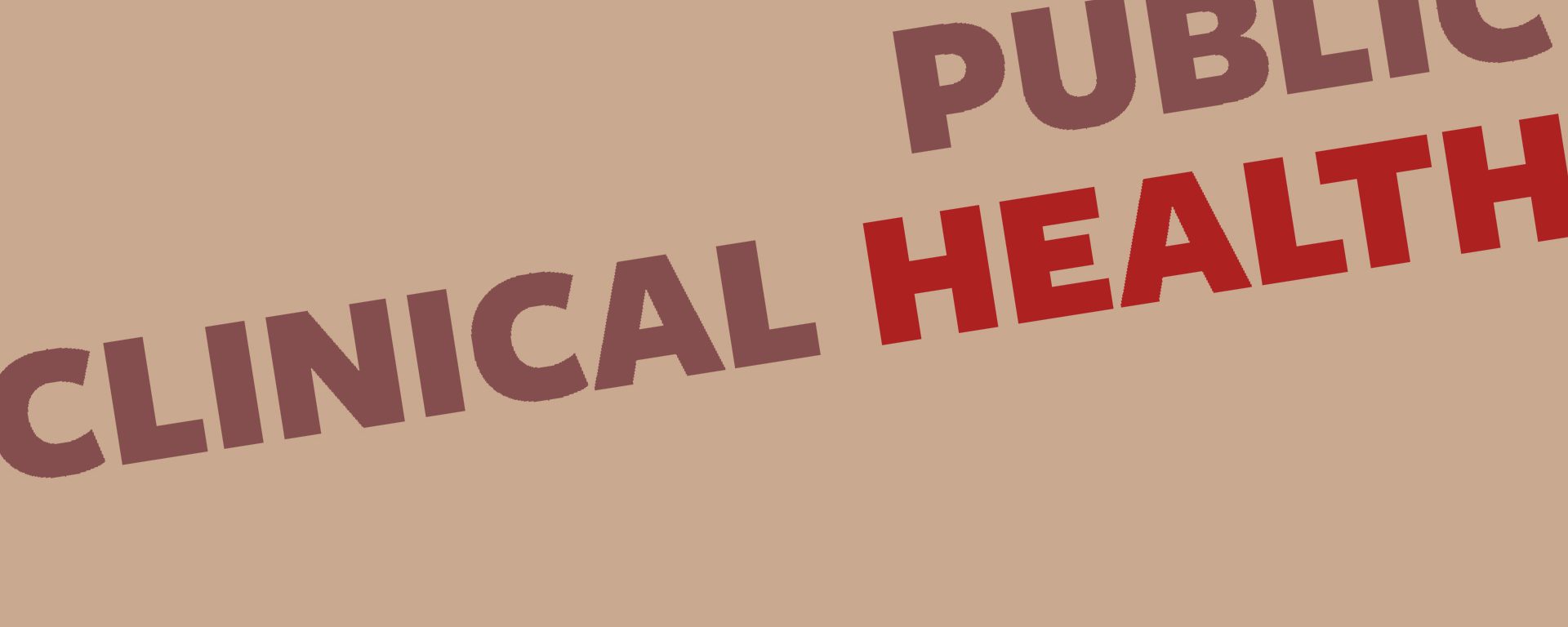So, you have a passion for making a difference in the world? Awesome! Fortunately, there are many great career paths that you can take to get into a position where you are making a difference in people’s lives—and helping to keep them safe—every single day. Two of these paths are public health and clinical health. While they both have similar goals of making a positive impact among those they serve, there are several key differences that make each field unique. Which path – public health or clinical health – is right for you? Which aligns best with your career goals?
First, you have to consider exactly where your specific interests and passion for making a difference lies. Do you want to make an impact by working directly with patients (individuals), or would you prefer to do make an impact on a broader level, by adding value to communities as a whole? Do you have a passion for working in medicine, or do you have a passion for researching and preventing disease at a larger scale? While these questions may seem broad in nature, they will help you figure out which route best suites you and your future career.
If you answered yes to wanting to working directly with patients in the field of medicine, then the clinical health route would be the best path for you. Clinical health professionals typically work face-to-face with patients, providing personal health care services. This may include diagnosis, treatment, and ongoing preventative care. Some common clinical health careers are doctors, nurse practitioners, registered nurses, and physician assistants. These clinical professionals can work in a variety of settings including hospitals, doctors’ offices, colleges and universities, and outpatient care facilities. While the roles within clinical health vary based on level of care and type of care, all clinical health professionals generally work directly with patients in some capacity. Their goals are to provide quality level of healthcare for these patients.
Public health, on the other hands, covers health from a wider perspective. It is designed to help populations of people and communities as a whole, rather than individual patients. Therefore, if you answered that you would prefer to make an impact at a larger scale, in the lives of the greater communities, through research and preventing disease, then the public health route would be your ideal path. Public health is the science of protecting and improving the health of communities and populations of people. Public health professionals do this through detecting, preventing, researching, and taking action against diseases and injuries. They also do this through promoting healthy and safe lifestyles amongst communities big and small. Public health professionals can take on many different types of roles within the field, such as an Epidemiologist, Biostatician, Disaster and Emergency Specialist, and Public Health Director or Educator.
Whether you choose to take the public heath or clinical health route, you will find most jobs require a certain level of higher education. Fortunately, there are many degree programs out there for you to pursue within both paths. If clinical health spoke more to you and your career goals, then you’ll want to determine what type of clinical professional you’d like to become. For example, if you want to enter the field of nursing, then you’ll need a nursing degree from an accredited university or college. As with many different healthcare fields, there are certain levels of nursing you can achieve. If you would like to become a registered nurse, then you’ll need an associate or bachelor’s degree in nursing. If want to advance your nursing career, then you’ll need a master’s degree to be able to provide a more advanced level of care as an Advanced Practice Registered Nurse (APRN).
The public health career path, more generally, will require a public health degree. A public health degree is designed to provide you with the foundations needed to become trained professional navigating the issues that threaten our communities. An advanced public health degree, such a master’s in public health (MPH), will go beyond the foundations of public health and provide you with the problem-solving and critical thinking skills needed to succeed in the field. Many MPH programs, such as the one at Goodwin University, will provide students with the relevant public health knowledge in topics such as biostatistics, social and behavioral sciences, public health policy, and methods in research and practice.
Whether you choose public health vs. clinical health, both are incredible career paths that will have lasting impacts on the people and communities you serve. If you would like more information about public health or clinical degree programs, contact Goodwin University today! Request more information online or call 800-889-3282 to learn more.
Goodwin University is a nonprofit institution of higher education and is accredited by the New England Commission of Higher Education (NECHE), formerly known as the New England Association of Schools and Colleges (NEASC). Goodwin University was founded in 1999, with the goal of serving a diverse student population with career-focused degree programs that lead to strong employment outcomes.

